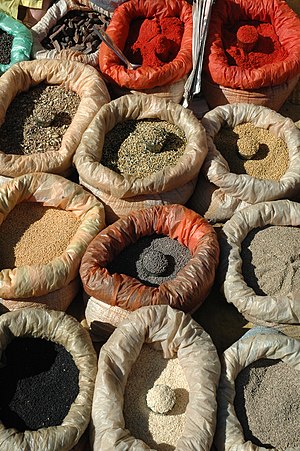While the holiday toast traditionally has been regarded as a symbolic gesture, evidence now indicates that it is much more than that. In fact, it provides some protection from bacterial infections, such as salmonella and Listeria. Generally, no winter holiday celebration from Thanksgiving to Christmas is complete without a celebratory toast with guests raising their toasting glasses filled with favorite spirits in salute to the health, wealth and happiness of family and friends. Little did we know that by doing this, we were adding a degree of protection to our bodies from pathogens ingested at holiday meals that include many spices and a significant amount of poultry, particularly turkey, which is the centerpiece of Thanksgiving dinners.
Poultry Problems
We all are aware of the need to handle poultry very carefully in all phases of preparation, from the processes of thawing to cooking and storing. However, the problems with turkeys are much deeper than that and actually begin with the manner in which they are farmed. Industrial turkey farms keep the birds in close quarters, with their upper beaks snipped off, preventing them from eating what they want (natural omnivores). Additionally, they are fed a steady diet of corn-based grain with antibiotics to accomplish the weight gain needed for sale to the public. Also, turkeys are subjected to large amounts of pesticides to control and inhibit the spread of disease. By the time the turkey arrives at our dinner tables, they are battle-scarred, weary and subject to disease. We do our best to control this situation in the preparation of these birds, but sometimes food poisoning does occur and is often mistakened for stomach flu, which typically occurs during the winter seasons.
Contaminated Spices Taint The Holiday Season
Another problem noted particular during the winter holiday season is contaminated spices. This is the time of year when rely heavily on spices for special entrees and desserts. A study recently released by the Food and Drug Administration (FDA) reveals that 12% of imported spices are contaminated with salmonella, “insect parts, whole insects, rodent hairs and other things.” The report concludes that the spices generally are imported from countries “like Mexico and India” and that the contamination occurs during the shipping storage phases, rather than during the harvesting phase.
Benefits of Alcohol
The benefits of alcohol in moderation are well noted and include reduced risk of heart attacks and strokes, diabetes, arthritis, enlarged prostate, dementia and several major cancers. The use of alcohol can be traced back to the Stone Age. It has played an important role in religion and worship, as well as in medicine, largely due to its antiseptic and analgesic purposes. Alcohol serves well as a social lubricant, and it has been known to increase the pleasure of eating.
While the abuse of alcohol is widely known, so are the benefits. With the current issues facing the food supply, ranging from food integrity and degradation during transportation and storage, problems arising from factory farming, use of GMOs, contamination and lack of oversight of imported foods, we must be very careful about what we eat. The holidays afford us all an opportunity to celebrate life, health and happiness. A toast with our favorite spirits gives us the opportunity to relax and celebrate, while at the same time possibly reducing our risks of illness from food poisoning.
We here at LGBG wish all of our readers a Happy Thanksgiving and hope that tomorrow you raise your glass in a toast to life, the earth, the environment, family and friends. To do is to live green, be green!
A Toast To Thanksgiving
May our gratitude lead to action: May we express our gratitude. May we smile when we encounter each other on the path, may we seek opportunities to share our talents with others, may we express our love to one another, may we give no expectation of receiving. May we seek to repair what is broken. May we end each day counting the day’s blessings, those we have received and those we have bestowed. May we be a blessing.” — Rabbi Maralee Gordon
_______________________
Resources for this article:
[1] http://www.huffingtonpost.com/kristin-wartman/turkey-thanksgiving_b_1088059.html
[2] http://www2.potsdam.edu/hansondj/AlcoholAndHealth.html#.UpY1ZSiTiPF
[3] http://www.nytimes.com/2013/10/31/health/12-percent-of-us-spice-imports-contaminated-fda-finds.html









